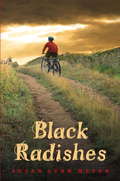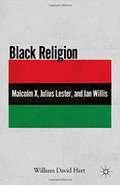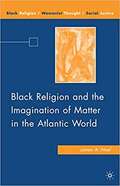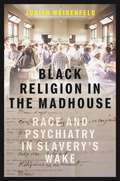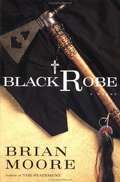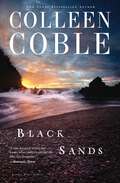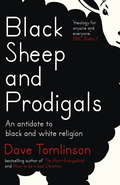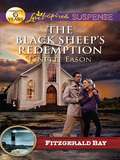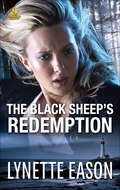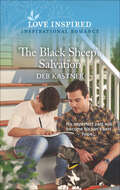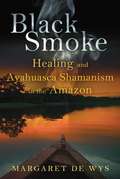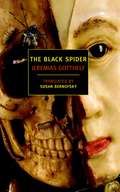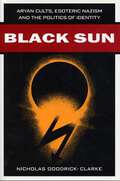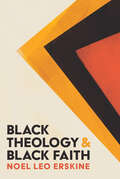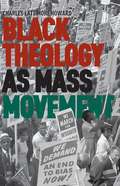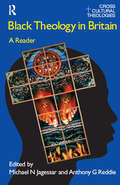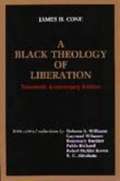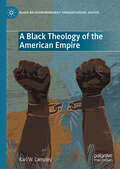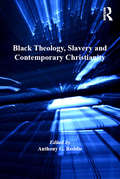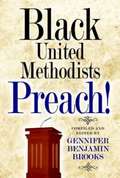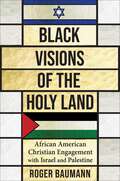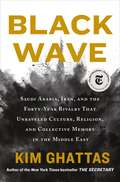- Table View
- List View
Black Radishes
by Susan Lynn MeyerIt is March of 1940. The French believe that their army can protect them from Nazi Germany. But is Paris a safe place for Jews? Gustave's parents don't think so. Forced to leave behind his best friend, the mischievous Marcel, and his cousin Jean-Paul, Gustave moves with his mother and father to Saint-Georges, a small village in the countryside. During April and May, Nazi Germany invades one country after another. In June, the French army is defeated, and Paris is occupied. Saint-Georges is still part of the free zone, but the situation there is becoming increasingly precarious. Then Gustave meets Nicole, a Catholic girl who works for the French Resistance. Along with her father, Nicole tries to find a way to smuggle Jean-Paul, Marcel, and their families into Free France so that they can all escape to America. It is Gustave, however, who comes up with a plan that just might work. But going into Occupied France is a risky thing to do when you are Jewish. Inspired by her father's experiences as a Jewish child living in France during World War II, Susan Lynn Meyer tells the story of a family's day-to-day struggles in a country that may not be able to keep its promise of "Liberty, Equality, and Fraternity. "
Black Religion: Malcolm X, Julius Lester, and Jan Willis
by William David HartThis book explores the spiritual dimensions (political, racial, sexual, and violent) of Malcolm X's journey from Christianity to Islam, Julius Lester's journey from Christianity to Judaism, and Jan Willis's journey from Christianity to Buddhism.
Black Religion And The Imagination Of Matter In The Atlantic World (Black Religion/womanist Thought / Social Justice Ser.)
by James A. NoelThis book situates the study of Black Religion within the modern temporal and historical structures in the Atlantic World. It describes how black people and Black Religion made a phenomenological appearance in modernity simultaneously and were signified in the identity formation of whites and their religion.
Black Religion in the Madhouse: Race and Psychiatry in Slavery's Wake
by Judith WeisenfeldHow white psychiatrists pathologized African American religionsIn the decades after the end of slavery, African Americans were committed to southern state mental hospitals at higher rates as white psychiatrists listed “religious excitement” among the most frequent causes of insanity for Black patients. At the same time, American popular culture and political discourse framed African American modes of spiritual power as fetishism and superstition, cast embodied worship as excessive or fanatical, and labeled new religious movements “cults,” unworthy of respect.As Judith Weisenfeld argues in Black Religion in the Madhouse, psychiatrists’ notions of race and religion became inextricably intertwined in the decades after the end of slavery and into the twentieth century, and had profound impacts on the diagnosis, care, and treatment of Black patients. This book charts how racialized medical understandings of mental normalcy pathologized a range of Black religious beliefs, spiritual sensibilities, practices, and social organizations and framed them as manifestations of innate racial traits. Importantly, these characterizations were marshaled to help to limit the possibilities for Black self-determination, with white psychiatrists’ theories about African American religion and mental health being used to promote claims of Black people’s unfitness for freedom.Drawing on extensive archival research, Black Religion in the Madhouse is the first book to expose how racist views of Black religion in slavery’s wake shaped the rise of psychiatry as an established and powerful profession.
Black Robe
by Brian MooreHis name is Father Laforgue, a young Jesuit missionary come from Europe to the New World to bring the word of God to the heathen. He is given minimal aid by the governor of the vast territory that is proudly named New France but is in reality still ruled by the Huron, Iroquois, and Algonkin tribes who have roamed it since the dawn of time and whom the French call Savages. His mission is to reach and bring salvation to an isolatied Huron tribe decimated by disease in the far north before incoming winter closes off his path to them. His guides are a group of Savages who mock his faith and their pledges even as they accept muskets as their payment. Father Laforgue is about to enter a world of pagan power and sexual license, awesome courage and terrible cruelty, that will test him to the breaking point as both a man and a priest, and alter him in ways he cannot dream. In weaving a tautly suspenseful tale of physical and spiritual adventure in a wilderness frontier on the cusp of change, Brian Moore has written a novel that rivals Joseph Conrad's Heart of Darkness in its exploration of the confrontation between Western ideology and native peoples, and its meditation upon Good and Evil in the human heart.
Black Saint of the Americas: The Life and Afterlife of Martín de Porres
by Celia CussenIn May 1962, as the struggle for civil rights heated up in the United States and leaders of the Catholic Church prepared to meet for Vatican Council II, Pope John XXIII named the first black saint of the Americas, the Peruvian Martín de Porres (1579-1639), and designated him the patron of racial justice. The son of a Spanish father and a former slavewoman from Panamá, Martín served a lifetime as the barber and nurse at the great Dominican monastery in Lima. This book draws on visual representations of Martín and the testimony of his contemporaries to produce the first biography of this pious and industrious black man from the cosmopolitan capital of the Viceroyalty of Peru. The book vividly chronicles the evolving interpretations of his legend and his miracles, and traces the centuries-long campaign to formally proclaim Martín de Porres a hero of universal Catholicism.
Black Sands (Aloha Reef Series #2)
by Colleen CoblePage-turning romantic suspense set amid the gorgeous beauty of Hawaii and the impending danger of a volcano. A brainy—and perpetually single—volcanologist, Annie Tagama works alongside her father at Hawaii Volcanoes National Park. But despite her pedigree, Annie has lost her passion or volcanology. She's quietly grieving the mysterious loss of her brother in the Middle East.When Annie discovers that her brother might still be alive—and in trouble—she shakes off her malaise and joins forces with Mano Oana, the unnervingly handsome family friend she had always blamed for her brother's death.As Annie and Mano investigate—and find that they have a lot more in common than tragedy—an evil force gathers strength on the main island. An ancient cult has reemerged—and Annie's little sister is somehow involved. As the old religion bubbles to the surface like lava, the old practices are not far behind . . . including human sacrifice.Annie and Mano are desperate to find her brother and save her family from destruction before the ancient evil smothers them all in an earth-shattering eruption.This full-length romantic suspense can be read as a standalone, but is also part of the Aloha Reef Series.Book one: Distant EchoesBook two: Black SandsBook three: Dangerous DepthsBook four: Midnight SeaIncludes discussion questions."Wow! Reading Colleen Coble's Black Sands is like taking a romantic excursion to Hawaii's rugged shoreline. Coble brings the setting to life, draws engaging characters, and spins an intricate web of intrigue." --Denise Hunter, author of The Convenient Groom and Summer by the Tides "Filled with the spirit of aloha and page-turning twists and turns, Black Sands is romantic suspense at its thrilling finest. A can't-put-down read!" --Linda Windsor, award-winning author of Paper Moon "No one take you to a setting like Colleen Coble, and what better place to be than the Black Sands of Hawaii? Reading the book was like a cool dip in the balmy ocean—under the lurking shadow of a volcano in shark-infested waters. Enjoy, but beware!" --Kristin Billerbeck, author of The Theory of Happily Ever After
Black Sheep and Prodigals: An Antidote to Black and White Religion
by Dave TomlinsonBlack Sheep & Prodigals is aimed primarily at people who are on the edges or outside of mainstream religion - those who reject, question, or have little interest in the tenets of traditional faith. It sets out to present a more contemporary and more humane approach to faith, drawing on honest doubt, common sense and spiritual experience. Using no religious jargon, chapter by chapter, it opens up fresh discussion about the meaning of faith in today's world, inviting readers to arrive at their own conclusions.
Black Sheep and Prodigals: An Antidote to Black and White Religion
by Dave Tomlinson'Very interesting, it's all about not alienating people before they even think about crossing the threshold of where you worship.' Chris Evans, BBC Radio 2Do you feel more at home on the edges of faith than at the centre? Would you call yourself a bit of a black sheep? Too often Christian spirituality has been associated with conformity, or a subculture where people don't feel able to ask questions. But Dave Tomlinson, author of How to be a bad Christian, doesn't think it has to be like this; instead, our spiritual communities can be 'laboratories of the Spirit' - places where we can explore issues of faith and spirit with openness, imagination and creativity. Welcome to black sheep spirituality - where doubts and questions are an essential part of faith; where difference of opinion is a sign of a secure community; where divine revelation is embraced wherever it is found - in the arts, science and the natural world as well as religious tradition; and where faith is something that is lived and practised rather than embalmed in beliefs or ritual.'Theology for anyone and everyone' BBC Radio 2
The Black Sheep's Redemption
by Lynette EasonEveryone in Fitzgerald Bay-except his law-enforcement family-is convinced Charles Fitzgerald murdered his children's nanny. Condemned by public opinion, his only hope for a replacement nanny to take care of his two-year-old twins is newcomer Demi Taylor. But Demi has problems of her own...starting with amnesia. She doesn't remember who she is, doesn't know where she's from-and has no idea why she always feels like someone is watching her. Is she in danger because of Charles? Or has someone sinister from her old life found her yet again?
The Black Sheep's Redemption (Fitzgerald Bay #5)
by Lynette EasonIn a New England town full of dangerous secrets, an outcast and a troubled newcomer find hope in each other’s arms in this romantic suspense series.Most of Fitzgerald Bay is convinced Charles Fitzgerald murdered his children’s nanny. Only the members of his own family—most of whom work in law enforcement—still believe in him. Condemned by public opinion, it’s nearly impossible to find someone to take care of his two-year-old twins. His only hope is newcomer Demi Taylor. But Demi has problems of her own . . . starting with amnesia. She doesn’t remember who she is, doesn’t know where she’s from—and has no idea why she always feels like someone is watching her. Is she in danger because of Charles? Or has someone sinister from her old life found her yet again?
The Black Sheep's Salvation (Rocky Mountain Family #1)
by Deb KastnerA woman is reunited with her high school boyfriend when the single dad returns to their hometown in this inspirational romance from a USA Today bestseller.His imperfect past will become his son’s best hope . . . Can a single dad earn a second chance with the woman whose heart he broke?A fresh start for Logan Maddox and his son, who has autism, means returning home and getting little Judah into the educational program that best serves his needs. The problem? Molly Winslow—the woman he left behind years ago—is the teacher. As Judah pulls them together, can Logan convince Molly that this black sheep deserves one more chance at love?
Black Smoke: Healing and Ayahuasca Shamanism in the Amazon
by Margaret De WysA diagnosis of cancer leads to healing and transformation in the Amazon jungle • Explains in vivid detail De Wys’s experience of being healed from cancer through visionary ayahuasca rituals in Ecuador • Describes her apprenticeship and relationship with the shaman who cured her • Explores the ways this spiritual medicine can heal the emotional origins of disease now plaguing our modern technological culture • Chosen as one of the “Top 10 Books of the New Edge” by Jonathan Talat Phillips on The Huffington Post When composer and Bard College music professor Margaret De Wys learned she had breast cancer, the diagnosis shattered her comfortable life. Seized by fear, crushed by existential loneliness, she couldn’t respond when her loved ones reached out to her. To everyone’s concern, the illness propelled her away from her family and deep into the Amazon to work with Carlos, a charismatic Shuar shaman and master of medicina milenaria, an ancient mystical tradition with a highly sophisticated and precise technology of healing. In Black Smoke, De Wys writes of her amazing encounter with Carlos as he guided her into a world of potent visionary plants, harrowing initiations, ritual purification, and miraculous healings, including the complete disappearance of her cancer. It was, as Carlos called it, “the path of the warrior.” Sharing a journey not only through cancer but also through self-transformation, De Wys provides an intimate inside look at the shamanic ceremonies of ayahuasca and the ways this spiritual medicine can heal the emotional origins of disease now plaguing our modern technological culture. Capturing her physical, emotional, and “holy voyage” through a world that differs vastly from our own in its perception of healing and wholeness, she offers a revealing chronicle of spiritual insight and a trenchant exploration of the limits of idealism. She not only provides a probing look at how our society can learn and benefit from indigenous wisdom but also weaves a cautionary tale about how potentially dangerous it is--on both sides--to try to cross those frontiers.
The Black Spider
by Susan Bernofsky Jeremias GotthelfAn NYRB Classics OriginalIt is a sunny summer Sunday in a remote Swiss village, and a christening is being celebrated at a lovely old farmhouse. One of the guests notes an anomaly in the fabric of the venerable edifice: a blackened post that has been carefully built into a trim new window frame. Thereby hangs a tale, one that, as the wise old grandfather who has lived all his life in the house proceeds to tell it, takes one chilling turn after another, while his audience listens in appalled silence. Featuring a cruelly overbearing lord of the manor and the oppressed villagers who must render him service, an irreverent young woman who will stop at nothing, a mysterious stranger with a red beard and a green hat, and, last but not least, the black spider, the tale is as riveting and appalling today as when Jeremias Gotthelf set it down more than a hundred years ago. The Black Spider can be seen as a parable of evil in the heart or of evil at large in society (Thomas Mann saw it as foretelling the advent of Nazism), or as a vision, anticipating H. P. Lovecraft, of cosmic horror. There's no question, in any case, that it is unforgettably creepy.
Black Sun: Aryan Cults, Esoteric Nazism, and the Politics of Identity
by Nicholas Goodrick-ClarkeA comprehensive and revealing study of the mindset and motives that drive far-right extremists in the post-World War II West.Black Sun examines the new neofascist ideology, showing how hate groups, militias and conspiracy cults gain influence. Based on interviews and extensive research into underground groups, the book documents new Nazi and fascist sects that have sprung up from the 1970s to the 1990s and examines the mentality and motivation of these far-right extremists. The result is a detailed, grounded portrait of the mythical and devotional aspects of Hitler cults among Aryan mystics, racist skinheads and Nazi satanists, and disciples of heavy metal music and occult literature.
Black Theology and Black Faith
by Noel Leo ErskineBecome Black with the oppressed Christ. Contemporary Black theology is complex and far-reaching. In this concise yet thorough volume, Noel Leo Erskine examines Black theology from every angle, seeking to answer the question, Why would Africa&’s children turn to the God of their oppressors for liberation? Beginning with the Middle Passage, which brought millions of Africans into the Caribbean and United States, Erskine unpacks the background and distinctive ideas of Black theology. Erskine covers major thinkers and illumines various areas of inquiry: suffering and theodicy, sin and reconciliation, baptism and the sacraments, womanism and Christology, and others. What unites these strands is the goal of liberation—of a faith that delivers not theoretical orthodoxies but real change in the lives of those buckling under racist oppression. Black Theology and Black Faith is the perfect reading for students and scholars looking to recenter the voices of the marginalized in their theology. Readers will leave its pages with a faith more alive to God&’s call to institute his kingdom on Earth.
Black Theology And Black Power
by James H. ConeFirst published in 1969, "Black Theology and Black Power" provided the first systematic presentation of black theology. Relating the militant struggle for liberation with the gospel message of salvation, James Cone laid the foundation for an original interpretation of Christianity that retains its urgency and challenge today.
Black Theology as Mass Movement
by Charles Lattimore HowardBlack Theology as Mass Movemen t is a call to current and future theologians to stretch the boundaries of Black Liberation Theology from what has become primarily an academic subfield into a full fledge liberation movement beyond the walls of the academy.
Black Theology in Britain: A Reader (Cross Cultural Theologies Ser.)
by Anthony G. Reddie Michael N. JagessarBlack theology as a discipline emerged in 1960s America, growing out of the experiences of Black people of the African Diaspora as they sought to re-interpret the central ideas of Christianity in light of struggle and oppression. However, a form of Black theology has been present in Britain since the time of slavery. 'Black Theology in Britain' offers the first comprehensive survey of Black theology, tracing its development in Britain from the eighteenth century to today. The essays cover a wide range of topics: Black Liberation; drama as a medium for Black theology; the perspective of Black women; Black theology in the pulpit and pastoral care; and the work of Robert Beckford and Anthony Reddie. 'Black Theology in Britain' is a key resource for students of British history, cultural studies, Black theology, and religious studies.
A Black Theology Of Liberation: Fortieth Anniversary Edition
by James H. ConeWith the publication of his two early works, Black Theology & Black Power (1969) and A Black Theology of Liberation (1970), James Cone emerged as one of the most creative and provocative theological voices in North America. These books, which offered a searing indictment of white theology and society, introduced a radical reappraisal of the Christian message for our time.
A Black Theology of the American Empire (Black Religion/Womanist Thought/Social Justice)
by Karl W. LampleyThis book understands, interprets, and critiques the theology of the American Empire that undergirds and bolsters U.S. foreign policy and global engagement in the contemporary world order. It is particularly in conversation with African American experience, American presidential history, black religious and political thought, as well as black theological perspectives. The book makes a constructive theological statement and declaration on the American Empire in opposition and resistance to racism and white supremacy in U.S. origins and historical development. Finally it proposes a way forward for twenty-first century black theology in response to the foundational theology of James Cone. This publication is important, not only for scholars interested in black religious thought, but also those seeking critical reflection on the omnipresence of racial inequality and social injustice in the American Empire.
Black Theology, Slavery and Contemporary Christianity: 200 Years and No Apology
by Anthony G. ReddieBlack Theology, Slavery and Contemporary Christianity explores the legacy of slavery in Black theological terms. Challenging the dominant approaches to the history and legacy of slavery in the British Empire, the contributors show that although the 1807 act abolished the slave trade, it did not end racism, notions of White supremacy, or the demonization of Blackness, Black people and Africa. This interdisciplinary study draws on biblical studies, history, missiology and Black theological reflection, exploring the strengths and limitations of faith as the framework for abolitionist rhetoric and action. This Black theological approach to the phenomenon of the trans-Atlantic slave trade and the institution of slavery draws on contributions from Africa, the Caribbean, North America and Europe.
Black United Methodists Preach!
by Gennifer Benjamin BrooksWhat accounts for the spiritual power and vitality of black preaching? What are the distinctive contributions of black preaching to the life of The United Methodist Church? How must black preaching evolve if it is to rise to the new challenges facing the UMC? Fifteen distinguished preachers from across the connection answer these and other questions in this important and illuminating volume. Gennifer Benjamin Brooks not only edits this collect, she also shares one of her own sermons along with the sermons of the following fourteen other preachers: Rose Booker-Jones, Leo W. Curry, Safiyah Fosua, Telley Lynette Gadson, Linda Lee , Pamela R. Lightsey, Okitakoyi Lundula, Tracy S. Malone, Gregory Palmer, Vance P. Ross, Robert O. Simpson, Rodney P. Smothers. James E. Swanson, Sr., and Dorothy Watson-Tatem.
Black Visions of the Holy Land: African American Christian Engagement with Israel and Palestine (Columbia Series on Religion and Politics)
by Roger BaumannSince at least the high point of the civil rights movement, African American Christianity has been widely recognized as a potent force for social change. Most attention to the political significance of Black churches, however, focuses on domestic protest and electoral politics. Yet some Black churches take a deep interest in the global issue of Israel and Palestine. Why would African American Christians get involved—and even take sides—in Palestine and Israel, and what does that reveal about the political significance of “the Black Church” today?This book examines African American Christian involvement in Israel and Palestine to show how competing visions of “the Black Church” are changing through transnational political engagement. Considering cases ranging from African American Christian Zionists to Palestinian solidarity activists, Roger Baumann traces how Black religious politics transcend domestic arenas and enter global spaces. These cases, he argues, illuminate how the meaning of the ostensibly singular and unifying category of “the Black Church”—spanning its history, identity, culture, and mission—is deeply contested at every turn. Black Visions of the Holy Land offers new insights into how Black churches understand their political role and social significance; the ways race, religion, and politics both converge and diverge; and why the meaning of overlapping racial and religious identities shifts when moving from national to global contexts.
Black Wave: Saudi Arabia, Iran, and the Forty-Year Rivalry That Unraveled Culture, Religion, and Collective Memory in the Middle East
by Kim Ghattas“[A] sweeping and authoritative history" (The New York Times Book Review), Black Wave is an electrifying and audacious narrative examination of how the modern Middle East unraveled and why it started with the pivotal year of 1979. Kim Ghattas seamlessly weaves together history, geopolitics, and culture to deliver a gripping read of the largely unexplored story of the rivalry between between Saudi Arabia and Iran, born from the sparks of the 1979 Iranian revolution and fueled by American policy. With vivid story-telling, extensive historical research and on-the-ground reporting, Ghattas dispels accepted truths about a region she calls home. She explores how Sunni Saudi Arabia and Shia Iran, once allies and twin pillars of US strategy in the region, became mortal enemies after 1979. She shows how they used and distorted religion in a competition that went well beyond geopolitics. Feeding intolerance, suppressing cultural expression, and encouraging sectarian violence from Egypt to Pakistan, the war for cultural supremacy led to Iran’s fatwa against author Salman Rushdie, the assassination of countless intellectuals, the birth of groups like Hezbollah in Lebanon, the September 11th terrorist attacks, and the rise of ISIS.Ghattas introduces us to a riveting cast of characters whose lives were upended by the geopolitical drama over four decades: from the Pakistani television anchor who defied her country’s dictator, to the Egyptian novelist thrown in jail for indecent writings all the way to the murder of journalist Jamal Khashoggi in the Saudi consulate in Istanbul in 2018. Black Wave is both an intimate and sweeping history of the region and will significantly alter perceptions of the Middle East.
